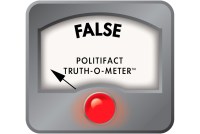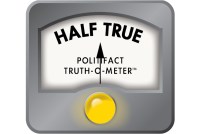Latest KFF Health News Stories
Why Millions Are Trying FDA-Authorized Alternatives to Big Pharma’s Weight Loss Drugs
Although Novo Nordisk and Lilly lump together the pharmacies that compound semaglutide and tirzepatide with internet cowboys selling fake drugs, there is a distinction. The FDA has offered Americans little clarity about the vast gray and black markets for the drugs.
Qué son los medicamentos compuestos que millones de personas usan para bajar de peso
La FDA permite e incluso fomenta que las farmacias de compuestos produzcan y vendan copias cuando un medicamento está en escasez, como es el caso de las drogas para combatir el sobrepeso y la obesidad.
Harris, alguna vez la voz de Biden sobre el aborto, tendría un enfoque abierto en temas de salud
Mientras los demócratas reconstruyen su candidatura presidencial a pocos meses de las elecciones, se esperaría que, de ser la nueva nominada, Harris adoptase una postura agresiva en apoyo al acceso al aborto y en otros temas controversiales de salud.
Harris, Once Biden’s Voice on Abortion, Would Take an Outspoken Approach to Health
If she grabs the baton from President Joe Biden to become the new presumptive Democratic presidential nominee, Kamala Harris would widely be expected to take an aggressive stance in support of abortion access — hitting former President Donald Trump on an issue that could undermine his chances of victory.
KFF Health News' 'What the Health?': At GOP Convention, Health Policy Is Mostly MIA
After an assassination attempt last weekend sent former President Donald Trump to the hospital with minor injuries, the Republican National Convention went off with little mention of health care issues. And Trump’s newly nominated vice presidential pick, Sen. J.D. Vance of Ohio, has barely staked out a record on health during his 18 months in office — aside from being strongly opposed to abortion. Alice Miranda Ollstein of Politico, Sarah Karlin-Smith of the Pink Sheet, and Joanne Kenen of Johns Hopkins University and Politico Magazine join KFF Health News’ Julie Rovner to discuss these stories and more. Also this week, Rovner interviews KFF Health News’ Renuka Rayasam, who wrote June’s installment of KFF Health News-NPR “Bill of the Month,” about a patient who walked into what he thought was an urgent care center and walked out with an emergency room bill.
Trump Is Wrong in Claiming Full Credit for Lowering Insulin Prices
Though the Trump administration established a voluntary, temporary program lowering insulin costs for some older Americans on Medicare, the mandatory price caps implemented through Biden’s Inflation Reduction Act go significantly further.
1st Biden-Trump Debate of 2024: What They Got Wrong, and Right
A debate marked by President Joe Biden’s faltering performance featured clashes over insulin costs, inflation, abortion, immigration, and Jan. 6.
Weight-Loss Drugs Are So Popular They’re Headed for Medicare Negotiations
The steep prices — and popularity — of Ozempic and similar weight-loss and diabetes drugs could soon make them a priority for Medicare drug price negotiations. List prices for a month’s supply of the drugs range from $936 to $1,349, according to the Peterson-KFF Health System Tracker. The Inflation Reduction Act President Biden signed in […]
High Price of Popular Diabetes Drugs Deprives Low-Income People of Effective Treatment
The makers of Ozempic and Mounjaro charge list prices of around $1,000 a month for the diabetes and obesity drugs, and insurers are reluctant to pick up the tab. Often, low-income patients have to resort to less effective treatments.
Personas de bajos ingresos no pueden recibir terapias efectivas contra la diabetes por el alto costo
La escasez de suministros y las barreras que ponen las aseguradoras para obtener esta poderosa clase de medicamentos, llamados agonistas de GLP-1, han dejado a muchas personas que viven con diabetes y obesidad sin los medicamentos que necesitan para mantenerse saludables.
Readers Speak Up About Women’s Health Issues, From Reproductive Care to Drinking
KFF Health News gives readers a chance to comment on a recent batch of stories.
Biden Is Right About $35 Insulin Cap but Exaggerates Prior Costs for Medicare Enrollees
Most Medicare enrollees likely were not paying a monthly average of $400 — as President Joe Biden stated — before the insulin cap took effect. However, because costs and other factors result in widely varying prices, some Medicare enrollees might have paid that much in a given month.
KFF Health News' 'What the Health?': Florida Limits Abortion — For Now
The Florida Supreme Court handed down dual abortion rulings this week. One said voters will be allowed to decide in November whether to create a state right to abortion. The other ruling, though, allows a 15-week ban to take effect immediately — before an even more sweeping, six-week ban replaces it in May. Meanwhile, President Joe Biden is doubling down on his administration’s health care accomplishments as he kicks off his general election campaign. Lauren Weber of The Washington Post, Joanne Kenen of the Johns Hopkins University schools of nursing and public health, and Tami Luhby of CNN join KFF Health News’ Julie Rovner to discuss these stories and more. Also this week, Rovner interviews health care analyst Jeff Goldsmith about the growing size and influence of UnitedHealth Group in the wake of the Change Healthcare hack.
This State Isn’t Waiting for Biden To Negotiate Drug Prices
As the federal government negotiates with drugmakers to lower the price of 10 expensive drugs for Medicare patients, impatient legislators in some states are trying to go even further. Leading the pack is Colorado, where a new Prescription Drug Affordability Review Board is set to recommend an “upper payment limit” for drugs it deems unaffordable. In late […]
KFF Health News' 'What the Health?': The ACA Turns 14
Saturday marks the 14th anniversary of the still somewhat embattled Affordable Care Act. Health and Human Services Secretary Xavier Becerra joins host Julie Rovner to discuss the accomplishments of the health law — and the challenges it still faces. Also this week, Alice Miranda Ollstein of Politico, Tami Luhby of CNN, and Mary Agnes Carey of KFF Health News join Rovner to discuss what should be the final funding bill for HHS for fiscal 2024, next week’s Supreme Court oral arguments in a case challenging abortion medication, and more. Plus, for “extra credit,” the panelists suggest health policy stories they read this week they think you should read, too.
Biden Said Medicare Drug Price Negotiations Cut the Deficit by $160B. That’s Years Away.
Savings estimated by the Congressional Budget Office from allowing the federal government to negotiate Medicare drug prices are based on a 10-year cumulative projection.
A Battle Between Drugmakers and Insurers Hits Patients in the Wallet
There’s a long-running battle between insurers and drugmakers over financial assistance programs that purport to help patients afford expensive drugs. And lately, insurers have been losing ground as lawmakers, regulators and courts weigh in. The issue is whether coupons and other copay aid many patients get from drugmakers should count toward annual insurance deductibles and […]
When Copay Assistance Backfires on Patients
Drugmakers offer copay assistance programs to patients, but insurers are tapping into those funds, not counting the amounts toward patient deductibles. That leads to unexpected charges. But the practice is under growing scrutiny.
KFF Health News' 'What the Health?': Maybe It’s a Health Care Election After All
Health care wasn’t expected to be a major theme for this year’s elections. But as President Joe Biden and former President Donald Trump secured their respective party nominations this week, the future of both Medicare and the Affordable Care Act appears to be up for debate. Meanwhile, the cyberattack of the UnitedHealth Group subsidiary Change Healthcare continues to do damage to the companies’ finances with no quick end in sight. Margot Sanger-Katz of The New York Times, Anna Edney of Bloomberg News, and Joanne Kenen of Johns Hopkins University and Politico Magazine join KFF Health News’ Julie Rovner to discuss these issues and more. Also this week, Rovner interviews Kelly Henning of Bloomberg Philanthropies about a new, four-part documentary series on the history of public health, “The Invisible Shield.” Plus, for “extra credit” the panelists suggest health policy stories they read this week that they think you should read, too.
Biden Said State of the Union Is Strong and Made Clear His Campaign Is Off and Running
President Joe Biden used his roughly 68-minute address to Congress to counter lackluster public approval ratings and draw clear contrasts between his administration’s policies and those of Donald Trump and some congressional Republicans. Abortion and health care were in the spotlight.


















